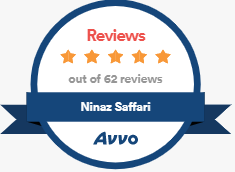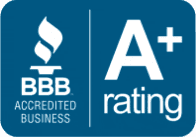Have you been ARRESTED or contacted by the Police, a Detective, FBI, or CPS?
Criminal Defense Attorney for Wet Reckless and Dry Reckless Driving in Los Angeles
Wet Reckless & Dry Reckless in Los Angeles
When a law enforcement officer charges you with a DUI (Driving Under the Influence) (California Vehicle Code section 23152:, the prosecution can decide to charge you with either a “dry reckless” or a “wet reckless” (instead of the standard DUI – see below).
Wet Reckless (California Vehicle Code section 23103: means you drove the vehicle while under the influence of alcohol. Alternatively, dry reckless (Vehicle Code section 23103) involves reckless driving of a car without the influence of alcohol.
Overview of Wet Reckless and Dry Reckless Bargain
A wet reckless entails less severe consequences than a DUI conviction. Both offenses can result in penalties from employers, licensing agencies, and the court itself. However, convictions for DUI and wet reckless vary significantly.
A DUI conviction may require the defendant to install an Ignition Interlock Device (I.I.D.) in their vehicle.
A DUI charge (even before a conviction) may also result in a driver’s license suspension by the California Department of Motor Vehicles (DMV): In other words, occasionally the DMV issues the order for license suspension before your criminal court proceeding is completed.
Indeed, the order can affect your vehicle operation regardless of whether you’re convicted in the court case/trial. First-time DUI typically face an automatic license suspension, which lasts up to four months. But the law allows the defendant to seek a restricted license.
See https://www.dmv.ca.gov/portal/uploads/2020/06/1st_Offender_Alcohol_Non-Injury.pdf
(“DUI First Offenders Alcohol Involved – Non-Injury 21 and Older”).
Note that the restricted license only works after a month of license suspension. The law will enable you to fight the charge by scheduling, appearing, and arguing (preferably through an experienced and skilled attorney) at a DMV DUI Administrative Hearing:
Reasons Why You Might Be Able to Obtain a Wet Reckless Plea
In a drunk driving case, it is not compulsory that the offender was operating the subject vehicle while intoxicated or driving recklessly. Accordingly, the law can allow you to take a plea bargain when:
- You had a blood alcohol content (BAC) level above 0.08%;
- The rising blood alcohol content;
- You do not have a history of alcohol-related offenses;
See, e.g., Possession of an Open Container in a Vehicle by a Person Under 21 (California Vehicle Code section 23224:
- The law enforcement officer who arrested you lacked probable to stop you in the first place;
- The police did not conduct the chemical test as per the California Code of Regulations Title 17
Prosecutors will not be willing to proceed with a case they know they will likely lose. Therefore, if he or she has insufficient evidence to convict you of at least a standard DUI, he or she will likely agree to a plea bargain.
If you or your criminal defense attorney and the prosecutor agree on a plea bargain, the court will almost certainly approve of the agreement wherein you plead no contest or guilty to a reduced charge of Reckless Driving (California Vehicle Code section 23103:
See also the Judicial Council of California’s Criminal Jury Instructions (“CALCRIM”) Number 2200 (“Reckless Driving — Veh. Code § 23103(a) & (b)”):
According to California Vehicle Code section 23103.5, after the prosecutor agrees to plead guilty to operating a vehicle while intoxicated with a BAC above 0.08% as a lesser alternative to the DUI charge, the wet reckless plea entails that you admitted to using alcohol while you operated the car.
Once you formalize your plea, the prosecutor will officially notify the DMV about the conviction, which will then be included in your driving record (as well as, of course, your criminal record).
If you have multiple prior DUI convictions, the prosecution will almost certainly refuse your request for a wet recklessness plea.
See, for example, Second DUI (Driving Under the Influence) (California Vehicle Code section 23540: In other words, a wet, reckless plea bargain may be the best option if you have no previous convictions (and, of course, if you or your attorney are unable to secure a dry reckless plea bargain).
Criminal Defense
Menu










What Are the Benefits of Wet Reckless Plea Deal?
Before you enter into a wet reckless plea deal, you’ll obviously want to be aware of the potential benefits of entering the plea deal.
Shorter Sentence Than a Typical First-Time DUI Conviction
Once convicted under wet recklessness, you may nevertheless receive as much as 3 months in jail as a sentence. (Realistically, however, because of the current Covid-related policies at theLos Angeles County Men’s Central Jail and Women’s Central Jail Los Angeles County — Century Regional Detention Facility: you might only serve as little as 10% of your sentence.)
By contrast, a standard first-time DUI conviction entails a maximum 6 months’ jail term. Therefore, when you consider the difference between the two, a wet reckless conviction makes more sense.
No Compulsory Court Order for License Suspension or Revocation
Once you receive the wet reckless deal, the court cannot revoke or suspend your driver’s license, unlike with a typical DUI conviction where the court suspends the license for 2 years for a second DUI conviction and 36 months for third-time offenders.
Many factors, including any failure on your part to submit to a chemical test or operating a vehicle while under 21, can lead to license suspension without the option to apply for a restricted license.
See Refusal to Submit to DUI Chemical Test (California Vehicle Code section 23612:
See also Driving with 0.05 Percent Blood Alcohol when Under 21 (California Vehicle Code section 23140(a):
However, with a wet reckless conviction, such aggravating factors will not trigger an automatic license suspension. Instead, the court may order you to install an interlock device in your vehicle. Although the court will not suspend your driver’s license under the reduced conviction, the DMV may still suspend your license if you fail to request a DMV admin hearing or after you lose at trial. So, ensure you retain your driver’s license by requesting a hearing within 10 days of your arrest (as required).
Shorter Probation Term
With a wet reckless conviction, the probation period usually lasts between 12 and 24 months. By contrast, typical DUI conviction attracts a probationary term of three to five years. The probation comes with conditions including:
- Restitution;
- Community service;
- Abstaining from taking alcohol and other drugs; and
- Attending drug or alcohol treatment sessions.
See, for example, Alcoholics Anonymous (AA)
Mandatory Jail Term for Repeat DUI Offenders
You must serve a mandatory jail term if you have more than one previous DUI conviction within the preceding ten years. However, pursuant to a wet reckless conviction, you will definitely serve a significantly lesser term.
See Second Conviction/Multiple Offender DUI Program (SB38):
CALCRIM Number 2114 (“Driving With 0.04 Percent Blood Alcohol with a Passenger for Hire — Veh. Code § 23152(e)”):
For example, with wet reckless conviction, the two- (or more) time offender will serve a minimum of one week of a compulsory jail term. But under a standard DUI charge, you serve a minimum compulsory term of three months for second-time offenders and a four-month mandatory period for third-time offenders.
Lower Fines
Once you face conviction under a wet reckless deal, the court could fine you between $145 and $1,000. The fines are much higher upon a typical DUI conviction since they may rise to $3,000.
No Mandatory License Suspension for Commercial Drivers
Once you face a conviction under the wet reckless deal, your commercial driving privileges will not necessarily be suspended.
See Driving With 0.04 Percent BAC with a Passenger for Hire (a.k.a. “Commercial DUI”) (California Vehicle Code section 23152(e):
See also CALCRIM Number 2114 (“Driving With 0.04 Percent Blood Alcohol with a Passenger for Hire — Veh. Code § 23152(e)”):
What Are the Disadvantages of a Wet Reckless Plea Deal?
Although a wet reckless plea bargain deal involves numerous benefits, it also comes with several significant disadvantages. The following are the potential disadvantages you might encounter after entering the wet reckless deal:
- The DMV can still suspend your driver’s license;
- The vehicle insurer may consider the conviction as a DUI;
- The DMV will add two points to the negligent operator limit;
See https://www.dmv.ca.gov/portal/driver-education-and-safety/dmv-safety-guidelines-actions/negligence/ (“The Negligent Operator Treatment System (NOTS)”).
- An employer may still discover the conviction.
Dry Reckless
When you’re charged with a first-time DUI, you might be lucky enough to plead to a dry reckless bargain under V.C. § 23103. The penalties associated with dry reckless are more lenient than a standard DUI conviction, as well as a wet reckless.
Obviously, a DUI charge does not mean the prosecution will automatically or even likely reduce the charge to a dry reckless. Based on the facts surrounding your case, the prosecution may decide to refuse your request for a plea bargain deal.
Notwithstanding, a dry reckless bargain comes with many benefits, including:
Reduced Jail Term and Fines. A dry reckless carries a jail term of up to three months, though it is highly unlikely the court will require you to serve time, while a first-time DUI conviction carries a 6-month max jail sentence. Alternatively, the fines for dry recklessness are $1,000, or one-third of the max fine for a DUI.
No Compulsory Sentencing. For repeat offenders, dry recklessness has no compulsory sentencing. Although the judge may decide to order a jail term, there will be no sentence enhancement.
Shortened Probation Period. A dry reckless conviction has a shorter probation term than a DUI charge. A dry reckless conviction carries a probation term of up to 24 months, while a DUI charge entails a probation term of up to five years.
No License Suspension. Once you commit a DUI offense, the DMV issues a license suspension for half a year. The department may decide to increase your license suspension period if you have a previous DUI conviction. But a dry reckless charge does not attract a mandatory license suspension.
What Are the Legal Penalties for a Dry Reckless Plea Deal?
Dry reckless deal penalties are more lenient than the standard DUI charge. So, once the court agrees with the prosecution’s offer to convict you of dry reckless, you will face the following penalties:
- A fine of $1,000;
- Maximum three-month jail term;
- Probation term for only a minimum one-year period.
The penalties could nevertheless increase if you caused even minor injuries to another person while committing the crime.
See also DUI (Driving Under the Influence) Causing Injury (California Vehicle Code section 23153:)
CALCRIM Number 2100 (“Driving a Vehicle or Operating a Vessel Under the Influence Causing Injury — Veh. Code § 23153(a), (f), (g)”):
CALCRIM Number 2101 (“Driving with 0.08 Percent Blood Alcohol Causing Injury — Veh. Code § 23153(b):
CALCRIM Number 2102 (“Driving with 0.04 Percent Blood Alcohol Causing Injury with a Passenger for Hire — Veh. Code § 23153(e)”):
So, even when you cause only minor injuries to a motorist or pedestrian, you will face a maximum jail term of 12 months. And when you cause injury to a third party, the fines could rise to $1,000. The DMV will also add two points after the conviction.
A second-time offender will have their license suspended. But with a dry reckless deal, there will be no adverse immigration consequences for immigrants. Also, dry recklessness does not lead to you losing your right to possess or own a gun.
What Are the Elements of Dry Reckless?
To secure your dry reckless conviction, the prosecutor from the Los Angeles County District Attorney’s Office (DA’s Office) or the Los Angeles City Attorney’s Office (CA’s Office) must prove the following elements:
- You operated the subject vehicle in a street or highway; and
- You breached the duty of care for reasonable road users.
How to Reduce a DUI to a Dry Reckless
In California, a dry reckless plea bargain consists of an agreement between the prosecution and you/your criminal defense attorney. Before the prosecution team agrees to the dry reckless plea, you will have to establish the following elements:
Weak DUI Evidence
If the prosecutor has weak evidence to support their DUI charge, the judge may decide to reduce the DUI to a dry reckless, or otherwise to approve of a dry reckless plea bargain. Your criminal defense attorney should therefore challenge the prosecutor by arguing that their evidence is insufficient. Regardless, the prosecutor determines whether to grant you the dry reckless deal or not.
Constitutional Violations
If the arresting officer violated your constitutional rights during the arrest, the prosecution may decide to offer you the deal.
See, for example, Fourth Amendment of the U.S. Constitution
If that was the case, then your attorney should file a Motion to Suppress Evidence (California Penal Code section 1538.5:)
Low Levels of Blood Alcohol Concentration
Under California law, operating a vehicle with a blood alcohol content/concentration (BAC) level above 0.08% is illegal. However, in order to convince the prosecutor – either a Deputy District Attorney or a Deputy City Attorney – to offer you a dry reckless plea, you or your criminal defense attorney must convince the prosecutor and/or the court itself that your BAC level was below 0.08% at the time of your arrest. Once he or she does so, the court will likely approve your dry reckless deal. Alternatively, the prosecutor might, instead of a standard DUI, charge you with wet recklessness.
First-Time DUI Offender
When you commit a DUI-related offense for the first time, the prosecution may consider it to be merely a dry reckless offense, depending on the circumstances. But you must establish to the court that it was your first DUI arrest. A background check will obviously determine whether you have a past criminal conviction for a DUI charge.
Other Plea Bargains for Both Wet Reckless and Dry Reckless
The prosecution team may decide to charge other crimes besides wet and dry reckless offenses. The two most common lesser alternative crimes are:
Public Intoxication (California Penal Code Section 624(F):
In California, you violate P.C. § 624(f) when you pose a risk to the safety of other people and their property by acting in an intoxicated and possibly reckless manner. You break the law by preventing others from enjoying public rights because of your intoxication.
Before you face conviction, the prosecution must prove the following elements of the crime:
- You were intoxicated;
- You were under the influence of alcohol in a public area; and
- Because of the intoxication, you prevented, obstructed, or interfered use of open ways and sidewalks.
See CALCRIM Number 2966 (“Disorderly Conduct: Under the Influence in Public — Pen. Code § 647(f)”):
However, you or your attorney can argue:
- The arresting officer did not have probable cause to stop you; and
- You were not intoxicated in a public area.
Speed Exhibition (California Vehicle Code section 23109):
As per this statute, sufficiently accelerating your vehicle’s speed is illegal and can cause you to lose control and thereby endanger the lives of other road users due to your intoxication. The penalties for the crime include:
- Fine not exceeding $500; and
- A two-year probation period.
Before you face conviction, the prosecutor must prove the following elements of the crime:
- You were operating a vehicle during the arrest;
- You had the intention of over-speeding to impress or show off to others; and
- You intentionally propelled or accelerated the vehicle’s speed.
The Los Angeles Defense Attorney Law Firm (LADALF)
Fighting against DUI charges requires in-depth knowledge of law enforcement arrest and chemical testing procedures. Since 2005, LADALF’s leader has exhibited both with outstanding results. Unlike most of her competitors, she does not operate a “DUI mill” where most of the defense work is done by non-attorney “paralegals”. Instead, Ninaz personally handles all of her DUI cases every step of the way. She also works closely with the top experts in their respective fields to attack the prosecution’s evidence against you.
"Ninaz is highly professional, organized, and talented."
RobertClient
"I always refer to Ninaz Saffari as a fighter in the courtroom. I walked out of court a free-man due to this attorney's hard work and know-how."
Kevin F.Client
"She not only makes you feel comfortable but she is very competent and experienced in pretty much any kind of situation and scenario. I feel very lucky to know her."
AddyClient